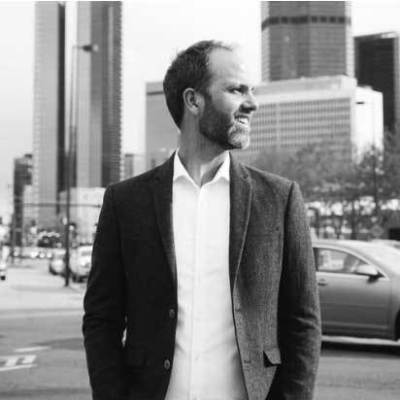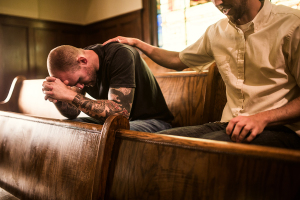Strategically caring for the Church through an economic crisis
Strategic (adjective): Carefully designed or planned to serve a particular purpose or advantage.

The world is currently in the grip of an unprecedented crisis caused by the spread of the COVID-19 disease (unprecedented, at least, within our lifetime). Beyond the ruinous health and mortality implications, the contagion is beginning to tear at the very economic foundations of our society, threatening widespread socioeconomic turmoil and plunging potentially millions of vulnerable people into financial peril.
Despite the potential for fear, this is not the time for the Church to retreat. It is the time for the Church to rise in faith and rise in action. As your church leadership prepares to guide the spiritual well-being of your church community, let’s also plan for their economic well-being: let’s strategically ensure that the most vulnerable in our church communities are cared for (and through) these difficult times.
Here are 5 fundamental actions church leaders must take:
1) PRAY.
Yes, it is obvious. Yes, we're all praying already. But it's too important to not be our foundation. In our prayers, let's thank God that He is still sovereign (Ps. 135:6) and that His purposes will still be achieved (Is 46: 9-10). Let's thank Him for His love and compassion for the sick and vulnerable (Ps. 147:3), and ask that His compassion becomes our compassion. Let's also ask for His unmatchable wisdom and insight (Job 12:13) to become ours as we serve and care for His people (James 1:5).
2) START WITH YOUR TEAM.
While it might be natural to first think about the impact of this challenge on our congregation, we should initially care for our staff and team. Our staff all have families to lead, the practicalities of life to navigate, and personal concerns weighing on their mind. Take the time to meet with them personally, answer questions they may have about their roles, and offer to include them in the network of support if they need. While this is primarily an expression of our duty of care to those who faithfully minister alongside us, it also ensures that we have a strong team ready to care for our greater congregation.
3) LEAD BY DIALOGUE.
One of the most frightening thoughts during a difficult time is the belief that we are alone. It is the dreaded fear that in our time of need – social, practical, emotional, financial – we will find no one willing to come to our side.
We fear we will be alone.
We fear we will be vulnerable.
And we fear we will have to face the fight by ourselves.
As church leaders, let's be proactive in opening this dialogue to let our people know that they are not alone, that help is available without shame or embarrassment, and that our church community will not allow anyone to be left behind during this challenging season.
4) CHECK IN WITH ALL, FOCUS ON FEW.
Take the time to check in with your whole church community to build a picture of where individuals are positioned, and where the community sits as a whole. A ‘State of our Church’ survey will gather powerful data to help you plan.
For people in certain demographics, a more personalized, focused approach is helpful. Check in on a weekly basis (if the individual allows) with senior citizens, healthcare workers, families with children (especially solo-parent families), and workers in economically-vulnerable fields (ie service, hospitality, travel).
5) PLAN TO PREVENT, NOT JUST TO CURE.
The medical adage that 'prevention is better than cure' is also economically applicable. Helping people maintain financial viability during a crisis is crucial, and is a far better option than rescuing them once the cycle of poverty takes it grip. Through the resources of your church (those resources that belong to the church as an organization) and the resources of those in your church (those resources that belong to people within your church community), plan specifically to ensure that people can still access:
1) Appropriate living conditions
2) Groceries
3) Healthcare
4) Childcare (if necessary)
5) Transport
Preventing a slide into poverty is cheaper, easier and more dignifying than pulling someone out of poverty. In most situations, short-term support that allows someone to carry on ‘business-as-usual’ during a crisis will typically see them return to self-sufficiency quickly as the crisis abates. For a real life example, please read Miranda's story.
The times ahead may be unprecedented, but they need not be unendurable. With God’s provision and care, and church leadership being strategically compassionate, it is possible to see ‘no unmet need among them’ realized today in our church communities.
Dr Phillip Barnardis committed to helping more people engage practically, intelligently and compassionately with the issue of poverty in our world. For training, speaking and other support, please enquire here.
Dr. Phillip Barnard was a pastoral staff leader at Hillsong Church London, a multi-campus church with weekly attendance of 13,000 people, for 10 years. He now lives in Denver, Colorado, where he focuses on addressing the cycle of poverty in one of Denver's most underprivileged neighborhoods. In 2019, Barnard began his work to establish get smart. do good., a pilot research organization that helps individuals and organizations to strategically rethink their compassionate activity. Barnard’s exploration into the development of an innovative framework for understanding the causes of poverty culminated with him earning his doctorate in theology from King's College London in 2017.



























